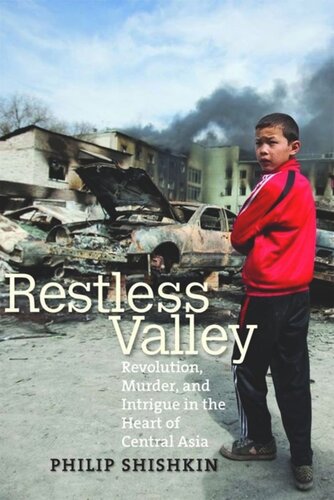

Most ebook files are in PDF format, so you can easily read them using various software such as Foxit Reader or directly on the Google Chrome browser.
Some ebook files are released by publishers in other formats such as .awz, .mobi, .epub, .fb2, etc. You may need to install specific software to read these formats on mobile/PC, such as Calibre.
Please read the tutorial at this link: https://ebookbell.com/faq
We offer FREE conversion to the popular formats you request; however, this may take some time. Therefore, right after payment, please email us, and we will try to provide the service as quickly as possible.
For some exceptional file formats or broken links (if any), please refrain from opening any disputes. Instead, email us first, and we will try to assist within a maximum of 6 hours.
EbookBell Team

4.7
16 reviewsIt sounds like the stuff of a fiction thriller: two revolutions, a massacre of unarmed civilians, a civil war, a drug-smuggling highway, brazen corruption schemes, contract hits, and larger-than-life characters who may be villains . . . or heroes . . . or possibly both. Yet this book is not a work of fiction. It is instead a gripping, firsthand account of Central Asia’s unfolding history from 2005 to the present.
Philip Shishkin, a prize-winning journalist with extensive on-the-ground experience in the tumultuous region above Afghanistan’s northern border, focuses mainly on Kyrgyzstan and Uzbekistan. Both nations have struggled with the enormous challenges of post-Soviet independent statehood; both became entangled in America’s Afghan campaign when U.S. military bases were established within their borders. At the same time, the region was developing into a key smuggling hub for Afghanistan’s booming heroin trade. Through the eyes of local participants—the powerful and the powerless—Shishkin reconstructs how Kyrgyzstan and Uzbekistan have ricocheted between extreme repression and democratic strivings, how alliances with the United States and Russia have brought mixed blessings, and how Stalin’s legacy of ethnic gerrymandering incites conflict even now.